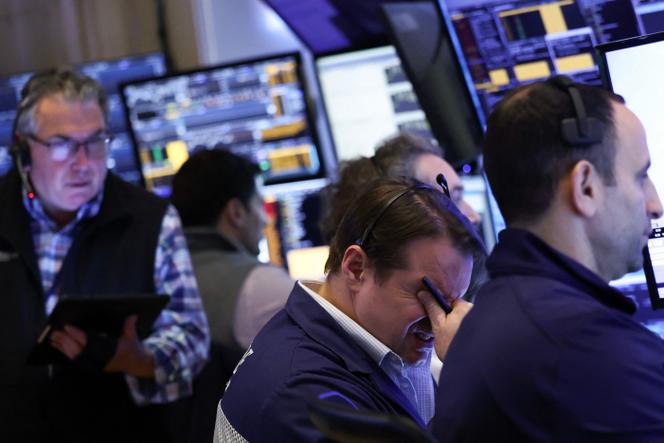


After 80 years of gradually reducing trade barriers, the global economy is experiencing a historic turning point. If he does not reverse his decisions, Donald Trump will have raised US tariffs on imports from the rest of the world from 2.5% to 25% in three months, reaching their highest level since the 1930s. "It's revolutionary, in the original sense of the term: he is ready to impose a very high immediate cost in the name of a long-term ideal [reducing the trade deficit and reindustrializing the US]," said Gilles Moëc, chief economist at AXA. "However, in the short term, it's going to be very painful."
The initial impact was a sharp stock market drop, with Wall Street recording its worst week in five years. On Friday, April 4, the CAC 40 – the 40 leading stocks in the Paris index – fell by 4.26% following a steep fall the previous day, erasing all gains made since the start of the year. In the United States, the Nasdaq fell by 5.8% and the S&P 500 by nearly 6%. Both index indices index lost around 11% in two days. Meanwhile, oil prices plummeted by more than 13% in the same period, signaling market expectations of a severe economic slowdown.
You have 84.64% of this article left to read. The rest is for subscribers only.
